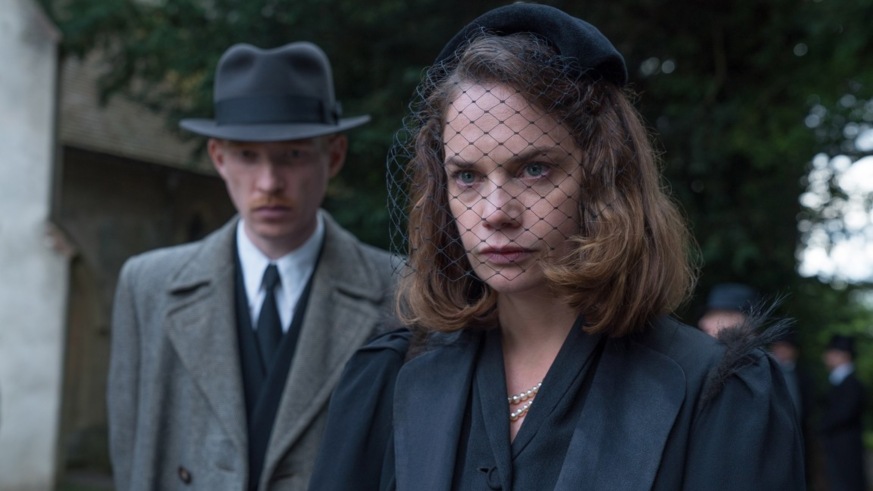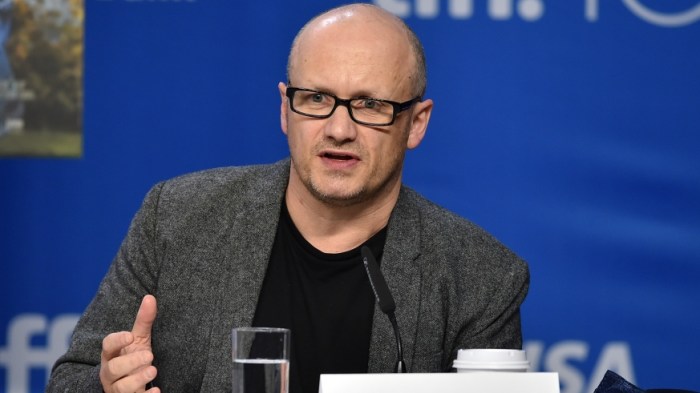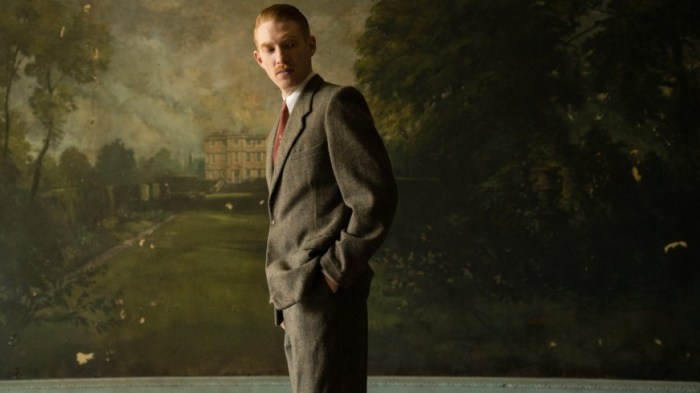The Little Stranger is a truly unique horror movie.
Not only does it play and subvert recognizable tropes from the genre, but it then blends them with the creepy and unsettling atmosphere of a gothic horror and ghost story, too.
Those of you that have read Sarah Waters’ novel will know those attributes are exactly what made it such a piercing and arresting read in the first place. Luckily, that is exactly what director Lenny Abrahamson was trying to achieve with his adaptation.
In order to accomplish that, though, Abrahamson had to make various changes and alterations along the way, which he recently broke down for me over the phone.
“I think it is pretty close to the book in its essence. I know that Sarah feels the same way and she is very happy with it, which is lovely.”
“It is different because the book is always from Farraday’s perspective. It is always about points of view. Our Farraday is a little younger than he is in the novel, where he is a little closer to Caroline.”
“And that’s because I think for a contemporary audience the big age difference that is in the novel, it would be harder to believe the romance that begins to happen between them.”
“We certainly cut a lot of material because the novel is always much, much bigger than the film.”
“And we did tweak and play with and reflect aspects of the endings that are interesting and work better in film. But at its heart it is the same story and about the same things. So it is pretty true to the book.”
But while Abrahamson is undoubtedly happy with his adaptation of “The Little Stranger,” he is the first to admit that there were plenty of challenges along the way.
“I’ll tell you what the challenges are because there are a few specific ones. In the novel, Farraday is a slightly unreliable narrator. But the things that you see in the novel are things that other people tell him.”
“So you have that distance. ‘Did it really happen? Are those people telling him the truth?’ But in the film, once you film something, there is this presumption that it is really happening. So you have to find other ways to hide and tease and keep questions alive in audience’s’ mind.”
“The book is also such a hybrid. You are quite a chunk of the way in before anything supernatural is suggested.”
“In a film, though, people are so familiar with horror stories, ghost stories and period dramas that they’re ready to hop on the train straight away and go, ‘OK, it’s that kind of film. Right, here we go.’”
“What I was doing with the film was teasing and flirting with these things. But not to the extent that the audience will just go, ‘Oh yeah. OK, here we go.’ And then go, ‘Hang on a second. That’s not what I signed up for.’”
“So what you’re trying to do all the time is keep it alive, keep it open. And for me the exciting thing was to give something that they’re not expecting and to play with those expectations and turn them upside down a bit.”
But what was it that Abrahamson was really trying to capture with his adaptation of “The Little Stranger”?
“I was trying to capture this idea of what it is really about is Sarah is trying use the tropes of the ghost story to talk about class and the kind of longing and regret that one can have from their childhood and how it can affect their future life.”
“It is about how toxic the distinctions can be when we create a hierarchy. This is about Great Britain, because it is set in Britain in the 40s. But it is true of any system that puts one set of people above another in terms of value.”
“And how that warps everybody, both the people that benefit the system and those who are oppressed by it. It really is destructive at a personal level, at a human level.”
“I found that really powerful in the novel and that’s what I wanted to preserve. That’s the thing I think we have managed to hold, what it does to people when they are divided.”
Abrahamson believes that “The Little Stranger” rings especially true in the context of Brexit.
“With the whole Brexit thing you are looking at a whole bunch of people that are harking back to a time that they have somehow romanticized.”
“But which is about a terrible kind of separation. And they are separating themselves again in a different way, and asserting a kind of vision of the country that was never there and was never real.”
“And the Ayres family in this are trying to hold onto some ideal of aristocratic society that is a very destructive thing. It is a very depressing thing that is happening now, and it is interesting to make a film that isn’t exactly about it but certainly resonates with it.”
“The Little Stranger” is now in cinemas.













